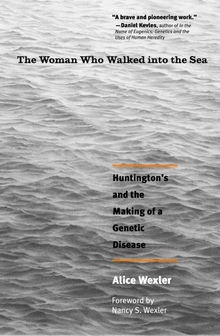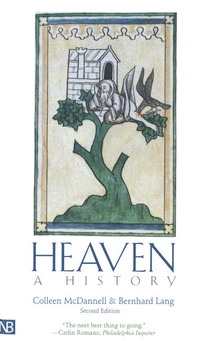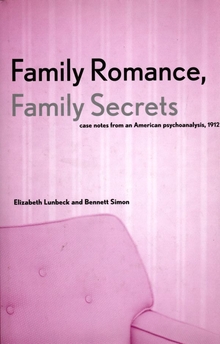The Woman Who Walked into the Sea
WARNING
You are viewing an older version of the Yalebooks website. Please visit out new website with more updated information and a better user experience: https://www.yalebooks.com
Huntington's and the Making of a Genetic Disease
Alice Wexler; Foreword by Nancy S. Wexler
A groundbreaking medical and social history of a devastating hereditary neurological disorder once demonized as “the witchcraft disease”
When Phebe Hedges, a woman in East Hampton, New York, walked into the sea in 1806, she made visible the historical experience of a family affected by the dreaded disorder of movement, mind, and mood her neighbors called St.Vitus's dance. Doctors later spoke of Huntington’s chorea, and today it is known as Huntington's disease. This book is the first history of Huntington’s in America.
Starting with the life of Phebe Hedges, Alice Wexler uses Huntington’s as a lens to explore the changing meanings of heredity, disability, stigma, and medical knowledge among ordinary people as well as scientists and physicians. She addresses these themes through three overlapping stories: the lives of a nineteenth-century family once said to “belong to the disease”; the emergence of Huntington’s chorea as a clinical entity; and the early-twentieth-century transformation of this disorder into a cautionary eugenics tale. In our own era of expanding genetic technologies, this history offers insights into the social contexts of medical and scientific knowledge, as well as the legacy of eugenics in shaping both the knowledge and the lived experience of this disease.
Alice Wexler is a research scholar at the UCLA Center for the Study of Women and the author of Mapping Fate: A Memoir of Family, Risk, and Genetic Research. She lives in Santa Monica.
“Wexler provides an accessible account of a disease in history. A richness of context gives her study its strength and character.”—Charles E. Rosenberg, Harvard University
“This is a remarkable story of ‘St. Vitus' Dance’ (Huntington's Chorea) from many perspectives: personal, historical and social. Its meticulous history, drawn from archives and personal experience details how this late-onset hereditary disease was viewed not only medically but personally and socially by family members, neighbors and friends of afflicted individuals. This is a must read for anyone interested in the social history and policy surrounding hereditary disease.”—Garland Allen, Washington University in St. Louis
“This book is an engaging chronicle of how the lived experience of illness in a family and community transforms over centuries into an intensely monitored and medicalized hereditary disease. Wexler does what historians do best: she folds what we take now to be a straightforward phenomenon, Huntington’s disease, back into the story of its making. By doing so, she tells us something profound about how we imagine ourselves and how we are connected to one another.”—Rosemarie Garland-Thomson, author of Extraordinary Bodies: Figuring Physical Disability in American Literature and Culture
“A brave and pioneering work.”—Daniel Kevles, author of In the Name of Eugenics: Genetics and the Uses of Human Heredity
“Alice Wexler has once again accomplished the near impossible by writing a fascinating academic page-turner. Filled with truth and brilliance throughout, The Woman Who Walked into the Sea is an amazing book that leaves the reader not only better informed, but materially enriched, moved by the experience, and not wanting it to end.”—Carole Browner, University of California, Los Angeles
“A thoughtful and impressively researched analysis of the history of [Huntington’s disease].”
—Naomi Rogers, Journal of American History‘Wexler’s book will be particularly valuable for historians of medicine and disability studies scholars…She demonstrates, once again, the crucial importance of historical methods for medical treatment, diagnosis and research.’ — Claire D. Clark, Journal of the History of Medicine, April 2010
Publication Date: January 26, 2010








